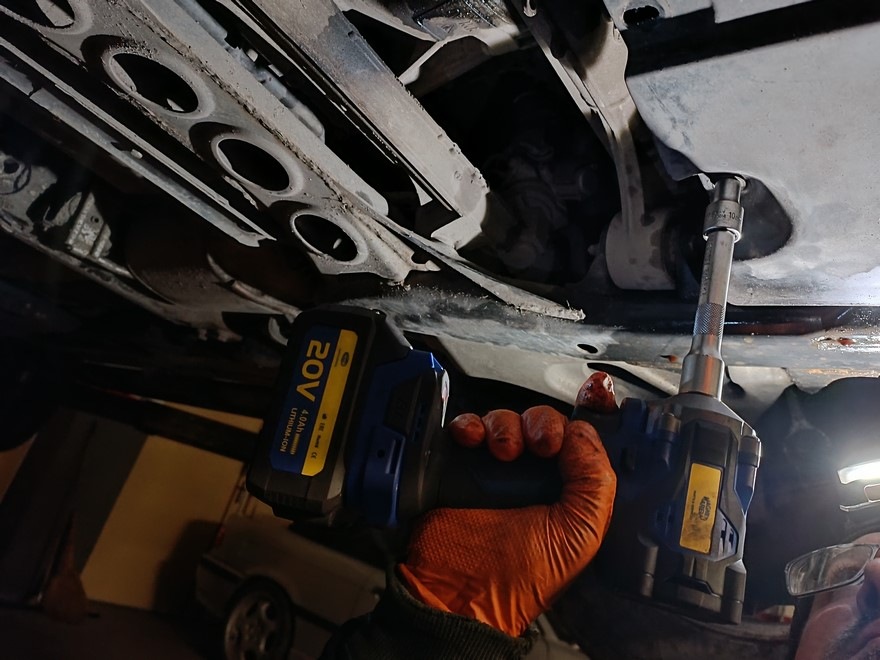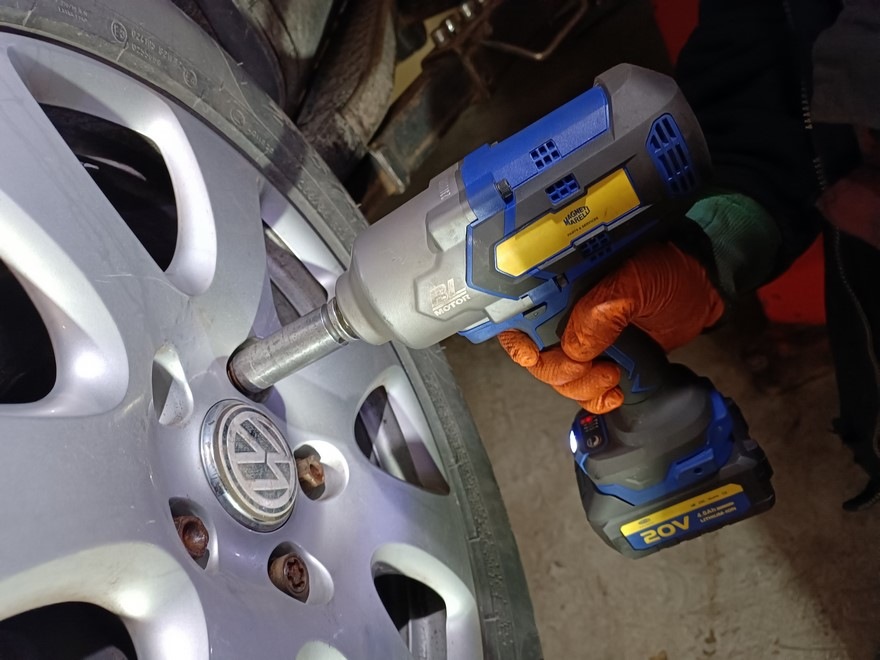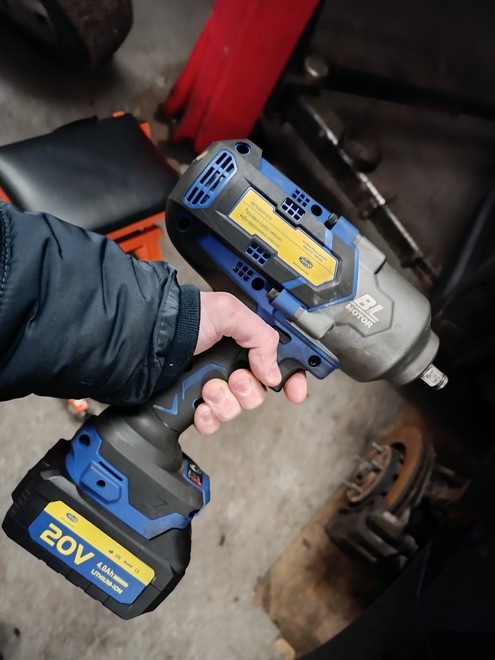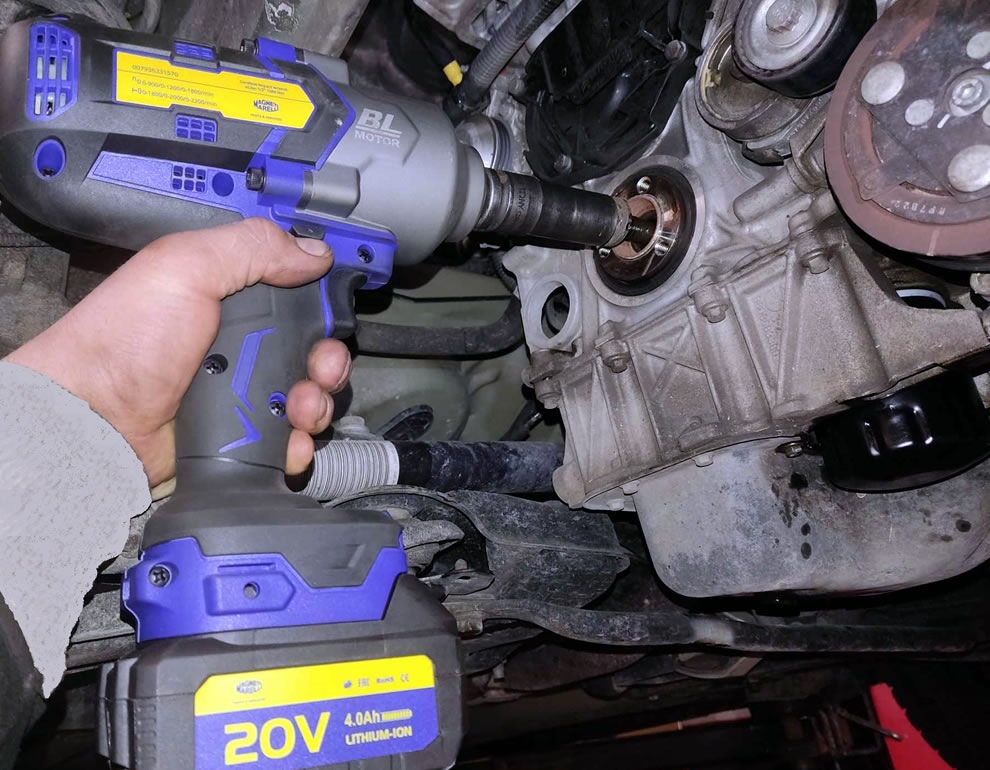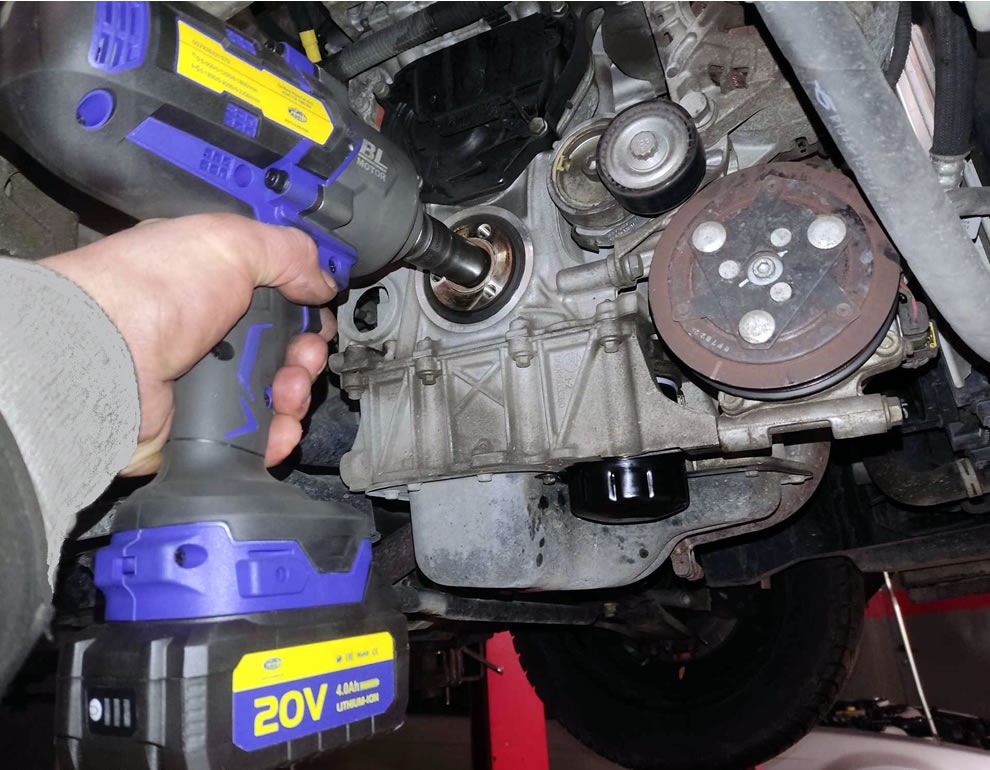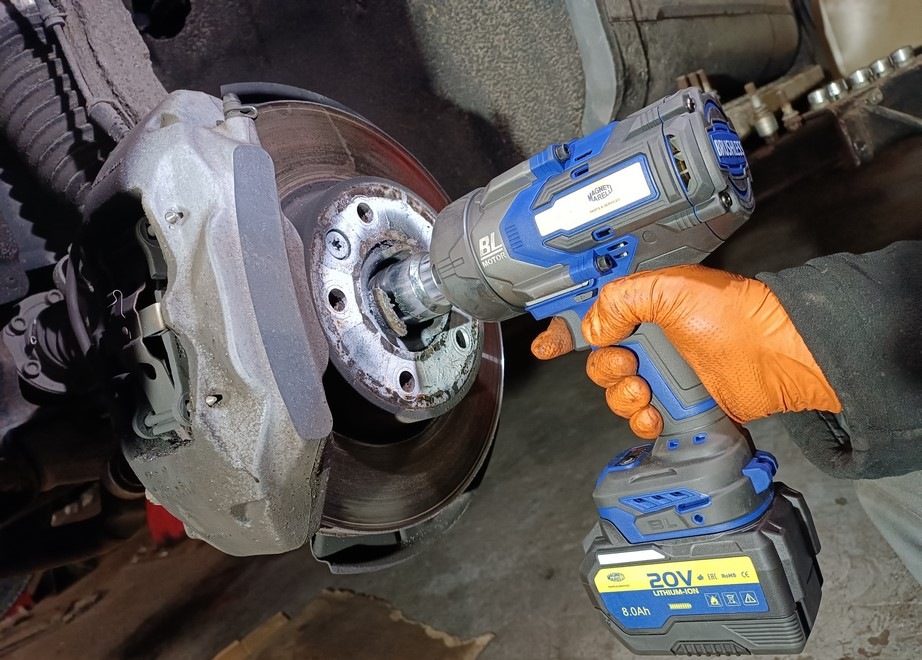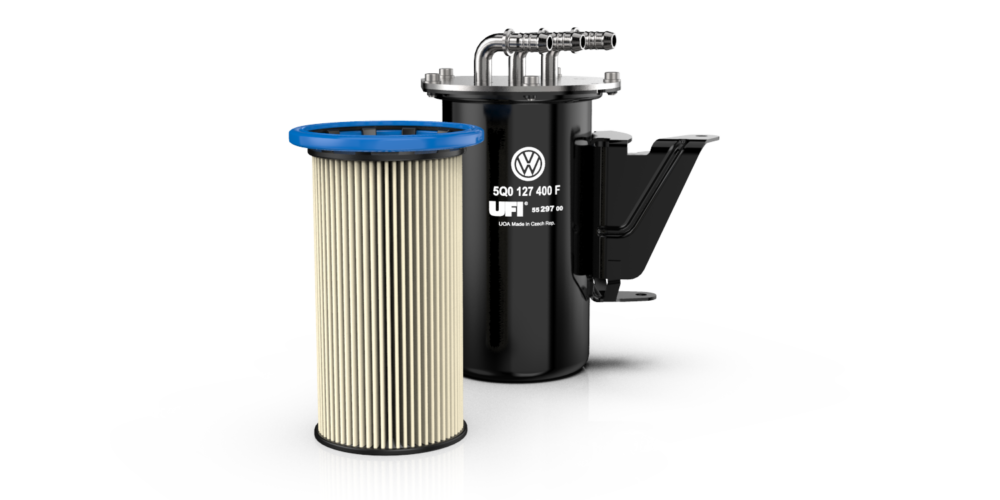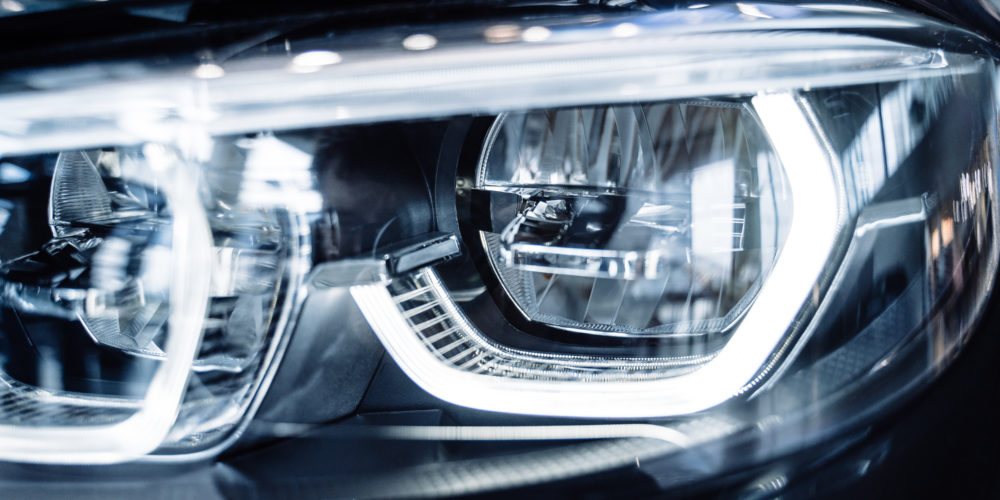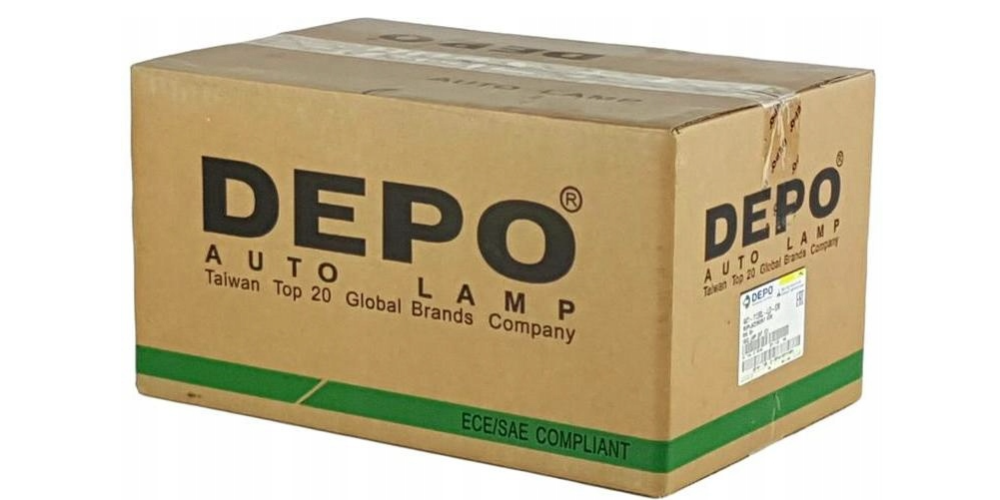Test of the E-Lion Cordless Impact Spanners from Magneti Marelli – Summary
For the past few weeks, the latest tools introduced to the Magneti Marelli brand have been working in a workshop friendly to our editorial team. The three battery-powered impact spanners, i.e. the E-Lion family, were tested under real, target operating conditions. What specifically were they used for? How did they perform? How much do they cost? What opinions do mechanics have about them? Answers below.
Cordless impact spanners without wires – will they work in an automotive workshop?
Battery equipment is probably the fastest growing sector of the tool market today. Every year, equipment with ever-increasing power, breakaway torque and battery capacity are introduced to manufacturers’ offerings. Added features are designed to convince professionals – including mechanics – that battery-powered equipment can be a good alternative to wired devices. Can a garage successfully dispense with pressure hoses and extension cords tangled on the floor today? We will try to answer this question partially, as our test was conducted on equipment from only one category – Magneti Marelli battery-operated impact spanners.
The E-Lion range consists of three spanners – a small E-Lion 1/2″ with a breakaway torque of 620 Nm, a medium-sized E-Lion 1/2″ with a torque of 1700 Nm and a large E-Lion 3/4″ that breaks nuts with a maximum torque of 2400 Nm. The exact technical specifications of the spanners we presented in the previous article with the announcement of the test.
So let’s get to the actual part of the text. The mechanics in the multi-station workshop were given three Magneti Marelli spanners to test, with the recommendation to use them in the maximum number of activities, and therefore everywhere possible. The test was to be intensive in order to test the various uses of the equipment in the shortest possible time.
Magneti Marelli E-Lion impact spanner test – general conclusions
After several weeks of working with Magneti Marelli tools, the mechanics were ready to share their thoughts about them with us. So far, the workshop where the test was carried out has been using battery-powered tools, but of a smaller format – such as a screwdriver, grinder and workshop lights. Any ‘rough’ work was carried out with pneumatic spanners, hooked up to a compressed air system from a compressor. The change in habits did not happen immediately, but over time mechanics became convinced to reach for spanners instead of unrolling pressure hoses. Using battery spanners is quicker and more convenient, although for longer jobs, mechanics have pointed to the weight of the spanners, which weigh more with batteries than classic wired spanners.
During the test, the spanners were always ready to go, thanks to the fact that two batteries are included with each one. Depending on how much work there was, the spanners were able to last between three and five working days on a full battery. Replacing the battery and plugging this discharged one into the charger takes between a dozen and a few dozen seconds. The batteries fit all the spanners, so the mechanics were keen to experiment. According to them, when the 8 Ah battery is connected from the largest E-Lion 3/4″ spanner to the E-Lion 1/2″ spanner, the smaller unit gains more power. It was also important for mechanics to be able to connect batteries to other battery-operated equipment serving the workshop. They fit devices from the well-known “M” brand, but can also be used in equipment from other brands after purchasing an adapter for a few tens of zloty. We noticed that the adaptor appeared in the workshop after just a few days.

Battery life depends very much on how the spanners are used. Under heavy load, the battery wears out faster, but during the test, the mechanics did not experience more than one battery discharge per day. The manufacturer assures that the batteries will last at least 1,000 charge cycles.
And what specifically can the E-Lion series spanners be useful for in the workshop? We will discuss each of these in turn below.
E-Lion 1/2″ small impact spanner 620 Nm – review
This small spanner was mainly used for simple, undemanding jobs. The mechanic said the spanner is best suited to technical work and smaller size bolts where there is little room to use larger tools. Higher-powered spanners are designed for larger corroded joints and indeed, for larger diameters, the medium-sized spanner from the kit was usually used. So what was being unscrewed or screwed with this spanner? Oil pan bolts, valve cover bolts, engine covers – all types of small bolts that require quite a high breakaway torque in the initial unscrewing phase. In other words, where a standard screwdriver gives up, bolts do not need to be loosened by hand, but a 620 Nm E-Lion 1/2″ spanner can be used. Its advantage is its low weight, just over 2 kg including the battery.

An example of a non-obvious use of a small spanner is screwing in screws fixing wheel arches or under-car covers. It performs better here than a normal screwdriver as it has an impact driver. As a result, it is able to tighten the screws more firmly and steadily in the final phase, even in the already worn sockets. However, the spanner is not a screwdriver and does not have a factory bit hole, but the workshop had a suitable cap available.
Each spanner has an illuminated speed and direction switch, as well as an LED light to illuminate the work area. A feature of the spanners is also the ‘STOP’ function, which prevents damage to the threads. When the bolt is loosened, the spanner stops. The function is activated/deactivated by pressing a button.
E-Lion 1/2″ 1700 Nm spanner – the most versatile
 This was the spanner most frequently used by mechanics during our test. The workshop deals extensively with brake and suspension servicing, as well as tyre replacement during the season. Almost every car entering the workshop therefore needs to have at least two wheels removed, and for this application the spanner is ideally suited. In addition, it has been used for dismantling and reassembling suspension components, where mechanics have appreciated its portability (no need to wrestle with the pressure hose in tight spaces). The high breakaway torque and compact design convinced mechanics to use the spanner frequently, although they admitted that for longer work on a car placed on a jack (having to work in a hands-off position), the weight (3.45 kg including battery) is not insignificant.
This was the spanner most frequently used by mechanics during our test. The workshop deals extensively with brake and suspension servicing, as well as tyre replacement during the season. Almost every car entering the workshop therefore needs to have at least two wheels removed, and for this application the spanner is ideally suited. In addition, it has been used for dismantling and reassembling suspension components, where mechanics have appreciated its portability (no need to wrestle with the pressure hose in tight spaces). The high breakaway torque and compact design convinced mechanics to use the spanner frequently, although they admitted that for longer work on a car placed on a jack (having to work in a hands-off position), the weight (3.45 kg including battery) is not insignificant.
The high breakaway and working torque declared by the manufacturer (three selectable modes) was judged by the mechanics to be realistic, and certainly quite sufficient under the conditions of an automotive workshop. The spanner did not give up on the over-tightened wheels of a large bus and also unscrewed the crankshaft bolt on the 1.2 PureTech engine, for example. According to the car manufacturer’s documentation, the bolt is tightened to a torque of 211 Nm, but in practice moving it usually requires the application of a much higher force.
Shortcomings? It has happened to mechanics several times that, with intensive spanner work, the battery has dislodged from its mount. It did not slide out of the socket completely, but disengaged, causing the spanner to stop working. It had to be slid back into place and locked in place.
Cordless heavy-duty spanner – E-Lion 3/4″ 2400 Nm
 The largest of the spanners offered by the Magneti Marelli brand is equipment for the heaviest tasks. It is particularly suitable for workshops repairing heavy goods vehicles, agricultural vehicles or construction machinery. The workshop that carried out the test relatively rarely hosts vehicles larger than vans within its walls, but the spanner came in handy a few times in the field, as the mechanics also service a local entrepreneur’s transport fleet. The high breakaway and torquing torque of the E-Lion 3/4″ spanner allows for quick loosening and unscrewing of truck wheels. According to mechanics, it would work very well as equipment for a mobile workshop providing heavy vehicle repair services.
The largest of the spanners offered by the Magneti Marelli brand is equipment for the heaviest tasks. It is particularly suitable for workshops repairing heavy goods vehicles, agricultural vehicles or construction machinery. The workshop that carried out the test relatively rarely hosts vehicles larger than vans within its walls, but the spanner came in handy a few times in the field, as the mechanics also service a local entrepreneur’s transport fleet. The high breakaway and torquing torque of the E-Lion 3/4″ spanner allows for quick loosening and unscrewing of truck wheels. According to mechanics, it would work very well as equipment for a mobile workshop providing heavy vehicle repair services.
This spanner has a larger battery than the others (8 Ah), and of course two pieces are included. As a result, despite its higher power requirements, its operating time is comparable to the smaller units in the E-Lion line. You mostly have to use two hands to operate the spanner, as it weighs more than 4 kg. The unit, like the E-Lion 1/2″ spanner, can operate in three rotation modes, selectable via a button.
How much do the Magneti Marelli E-Lion spanners cost?
There is no denying that the market success of newly launched tools, even within a well-known and well-liked brand, depends largely on price. So how much can you buy Magneti Marelli spanners for and how do they compare with the competition’s devices? We have received preliminary suggested retail prices from the manufacturer.
The smallest 1/2″ E-Lion spanner, which is useful for simple workshop work, costs around 209 € (with case and two 4 Ah batteries included). The larger E-Lion 1700 Nm spanner costs around 349 €, also including batteries and a case. The largest 3/4″ spanner is already an expense of 499 € , but in this case there are two larger 8 Ah batteries available.

For many cordless impact spanners on the Polish market, a significant part of the final price is the value of the battery. Often these devices are offered without a battery which must be purchased separately. Given that the E-Lion range comes with two batteries included, the price seems attractive against the competition of the best-known brands. In our opinion, in terms of quality and durability, E-Lion spanners will occupy a place in the mid-market segment, just below the expensive spanners of the top brands in the tool industry and well above the Far Eastern products seen in supermarkets.
A big advantage of the Marelli range is also the possibility to buy batteries separately (as we mentioned, these can also be used for many other battery devices in the workshop and beyond). The prices are attractive – you will pay less than 49 € for the smaller 4 Ah battery and just over 89 € for the larger 8 Ah battery.
Will cordless impact spanners work in an automotive workshop?
The answer to the question that underpinned the test we conducted is obvious. The mechanics in the spanner testing workshop previously did not regard battery equipment as particularly necessary or indispensable. After only a few weeks of testing, they already happen to forget to start the compressor when starting work. This is probably a sufficient recommendation for this type of tool.
In many situations, they speed up work, make access easier and are simply convenient. Perhaps not every job involving them (due to the weight of the equipment) is comfortable, but certainly doable. So, if you are considering buying cordless spanners for your workshop, we recommend it. Worth a try!











